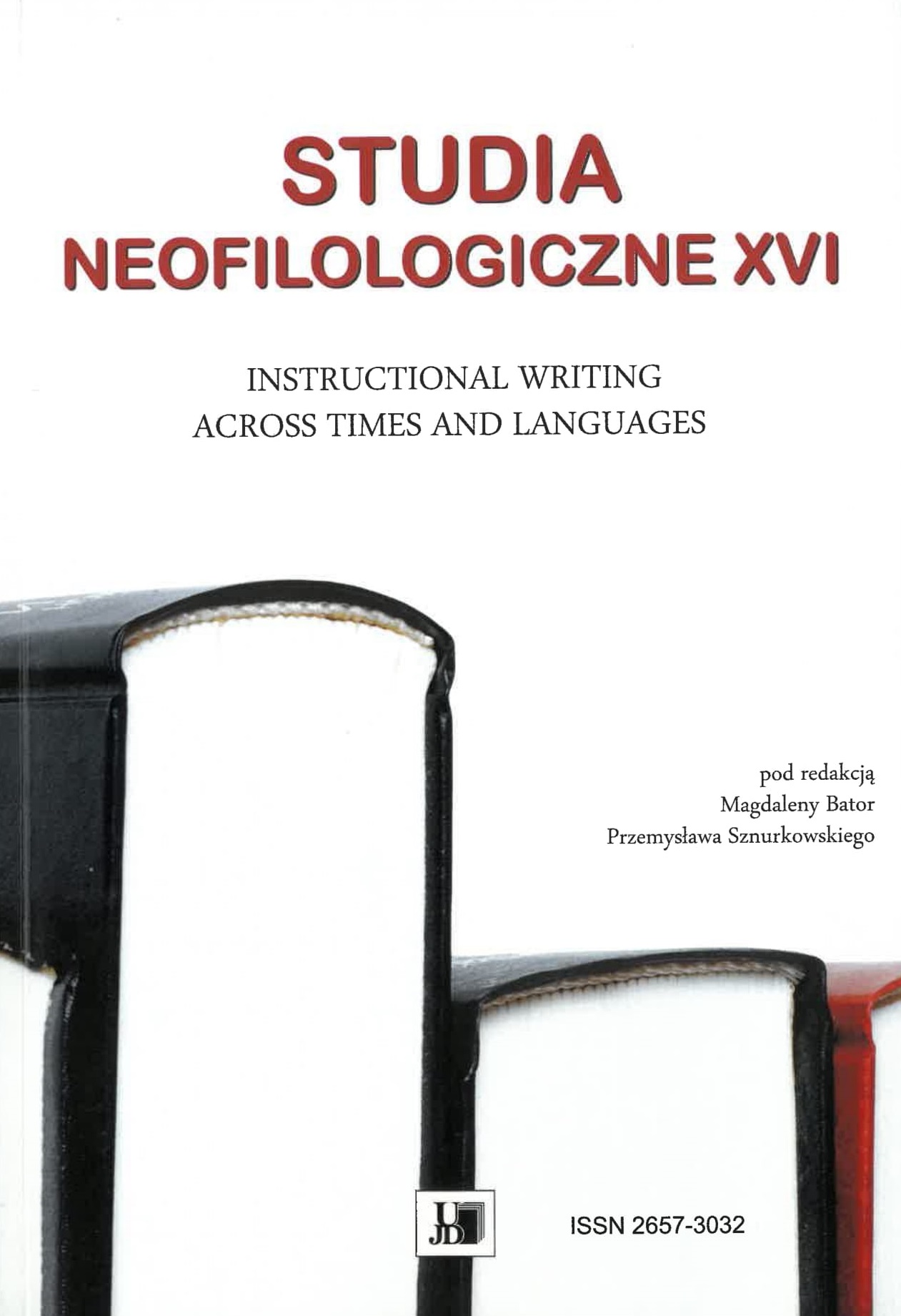THE EARLIEST POLISH COOKBOOKS: A COMPARATIVE ANALYSIS
THE EARLIEST POLISH COOKBOOKS: A COMPARATIVE ANALYSIS
Author(s): Magdalena BatorSubject(s): Theoretical Linguistics
Published by: Uniwersytet Jana Długosza w Częstochowie
Keywords: culinary recipe; foreign influence; text type features; authorship; readership
Summary/Abstract: The tradition of writing down culinary recipes started much later in Poland than in other European countries (as for instance France, England or Germany). The earliest Polish (known) cookbook is Compendium Ferculorum written by Stanisław Czerniecki and dated to 1682. Its author highly valued Polish cuisine and claimed that foreign tastes should not influence native ones. The collection was very popular and well known. At approximately the same time, an anonymous author collated another cookbook, Moda Bardzo Dobra [Very good trends]. It was dated to the period 1686-88 and is believed to be closely related to the Austrian Ein Koch- und Artzney-Buch from 1686. The latter Polish collection has only been discovered recently.The two collections were briefly compared by Dumanowski (2011: 52–66). However, his comparison is purely of a cultural and historical character. In the present study, a linguistic analysis of the two collections will be offered in order to compare the structure and selected features of the text type as represented in Compendium Ferculorum, whose author openly valued native over foreign ways, and Moda Bardzo Dobra [Very good trends], which was clearly inspired by foreign (mostly German and Austrian) instructions.
Journal: Prace Naukowe Akademii im. Jana Długosza w Częstochowie. Studia Neofilologiczne
- Issue Year: XVI/2020
- Issue No: 16
- Page Range: 115-128
- Page Count: 14
- Language: English

